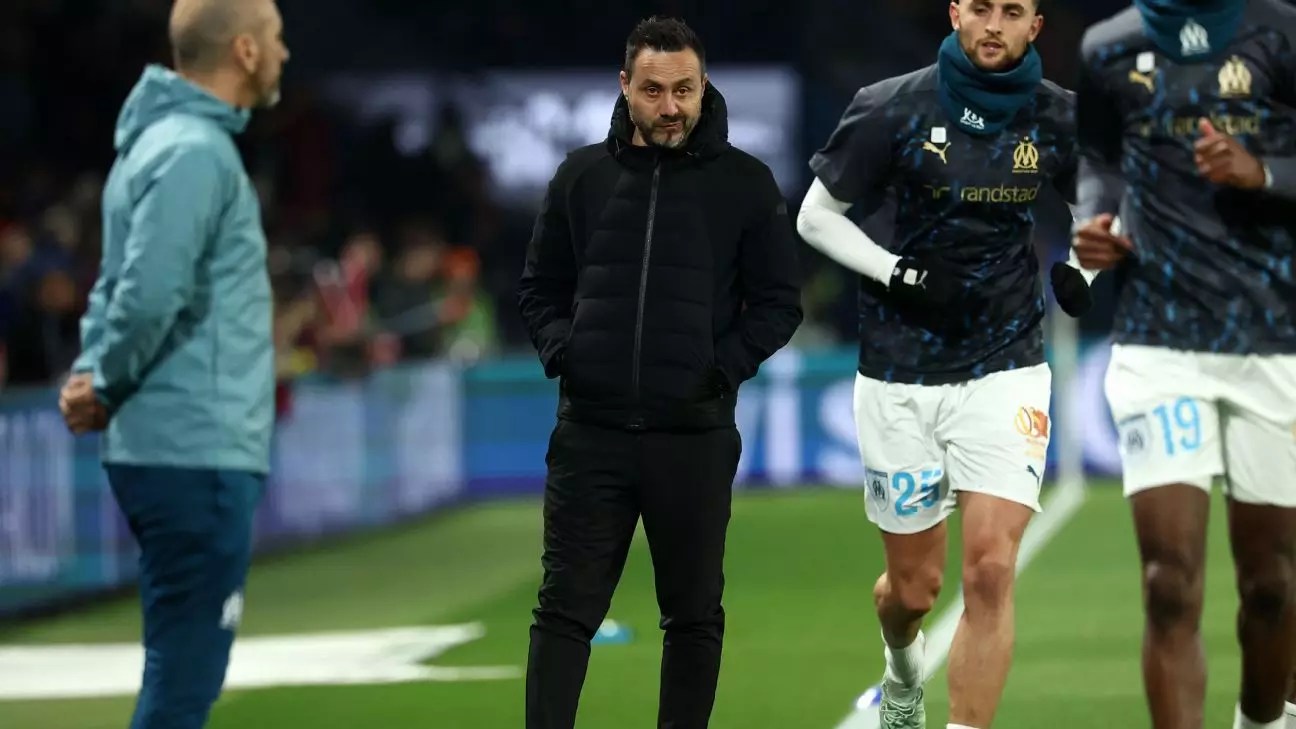The recent altercation between Marseille stars Adrien Rabiot and Jonathan Rowe reveals cracks within the club’s internal cohesion that go far beyond a mere post-match clash. Instead, it exposes a broader issue of management failure, poor culture, and insufficient conflict resolution strategies. When high-profile athletes, especially professionals of Rabiot and Rowe’s caliber, resort to violence akin to an “English pub fight,” it signals that discipline, communication, and leadership within the club are fundamentally broken. Such incidents are symptomatic of an environment where players feel disconnected from authority and where emotions run unchecked, potentially fueled by frustration, unmet expectations, or a toxic locker room climate.
The club’s official response, including the public listing of both players and Marseille president Pablo Longoria’s description of the altercation as “extremely violent,” demonstrates an attempt to publicly condemn misconduct. However, it also raises questions about whether disciplinary actions serve only as punitive measures rather than opportunities for culture rebuilding. The decision to temporarily suspend the players seems reactive rather than strategic—an attempt to placate fans or media rather than address underlying issues that prompted such violence. This incident reveals a need for introspection at every organizational level, emphasizing that cultivating respect, psychological safety, and professionalism is paramount for sustainable success.
The Failure of Leadership and the Erosion of Hierarchical Stability
De Zerbi’s characterization of the fight as “like an English pub fight” is both vivid and concerning. It exposes a troubling departure from professional standards and highlights a depletion of authority from leadership figures. The manager’s explanation that the players’ violence mirrors workplace disputes—involving physical violence and even one player losing consciousness—underscores a breakdown in workplace discipline and oversight. It is unsettling that in a professional sports setting, chaos erupted to such an extent that it required intervention from medical personnel, revealing an alarming disregard for the decorum expected in elite teams.
Furthermore, De Zerbi’s emphasis on hierarchy—”the club comes first”—points to a recognition that leadership must enforce boundaries and accountability. Yet, it remains to be seen whether his actions will foster a stronger discipline culture or merely act as a temporary fix. The decision to keep the players out of the squad pending further evaluation indicates a cautious approach, but it also risks fostering lingering tension and division within the team. Leadership must go beyond punitive measures; it needs to cultivate an environment where athletes learn to manage emotions, resolve conflicts constructively, and uphold the club’s integrity.
The Broader Implications: Culture, Accountability, and Future Prospects
This incident should serve as a wake-up call for Marseille and similar clubs facing escalating disciplinary issues. It raises critical questions about the state of mental health, emotional regulation, and the value placed on sportsmanship in contemporary football. If clubs do not prioritize fostering a positive culture that discourages violence and disrespect, similar incidents are bound to recur, jeopardizing both player careers and club reputation.
While the club’s immediate action—to list Rabiot and Rowe and suspend them—may be necessary, it is ultimately insufficient if not accompanied by comprehensive cultural reforms. Implementing conflict resolution training, promoting open communication channels, and reinforcing professionalism are essential steps toward long-term stability. As one of France’s most storied clubs, Marseille’s ability to rebound from such disruptive events hinges on its willingness to confront internal issues head-on and to reaffirm that respect and discipline are non-negotiable pillars of its identity.
The incident is more than a post-match brawl; it is a mirror reflecting deeper systemic problems that threaten the club’s future. If Marseille is serious about restoring its stature, it must foster a culture where accountability, maturity, and mutual respect are not just ideals but the foundation of everyday conduct. Only then can it hope to rebuild trust, unity, and resilience on and off the pitch.


Leave a Reply